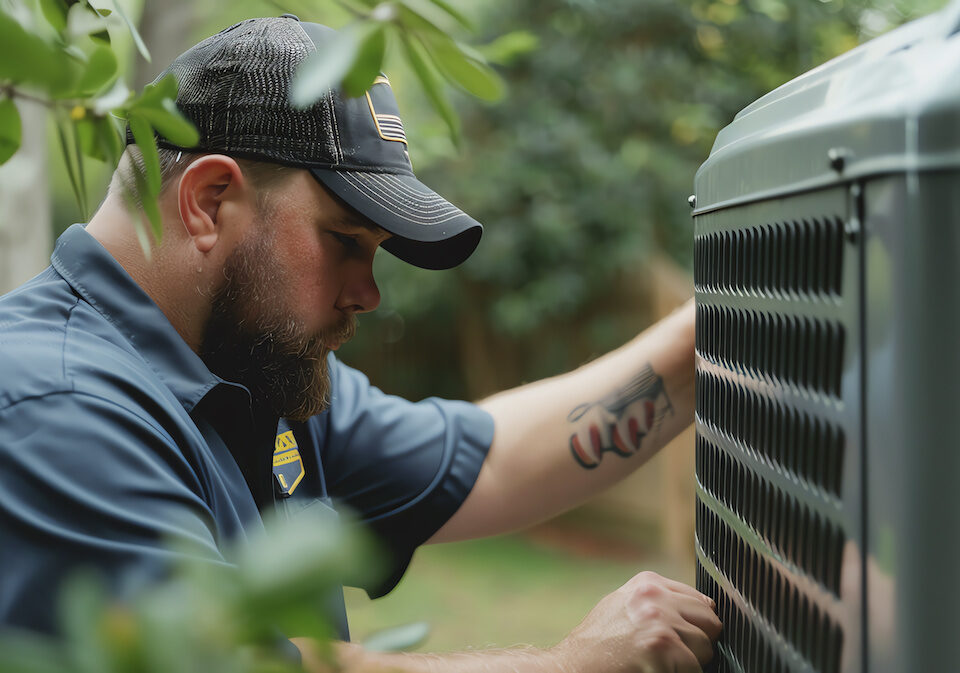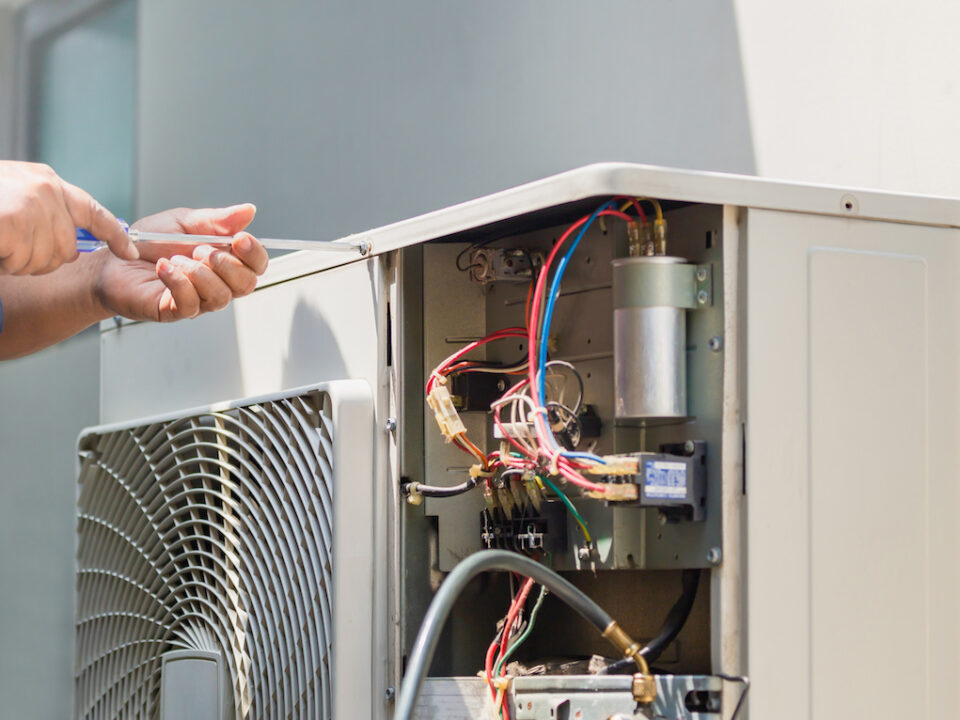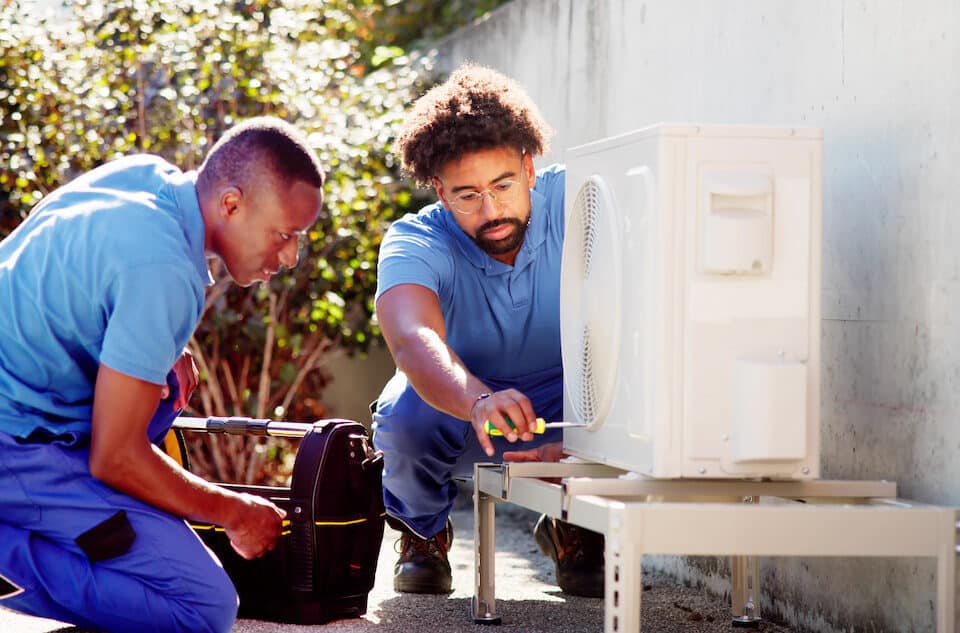Safe Use of Space Heaters

Exploring the Safe Use of Space Heaters
Space heaters can provide extra warmth in a cold house or chilly home office. But they can also pose a safety risk—no matter where you use them. Here are some tips from Trust Heating & Air to keep your home safe and warm when it’s cold outside.
According to the Consumer Product Safety Commission, portable space heaters are responsible for 1,700 house fires a year. and most unfortunately, fires started by portable space heaters result in about 80 deaths annually.
Heating equipment, like space heaters, is the second leading cause of home fires in the United States. More than 65,000 home fires are caused by heating equipment each year. These fires result in hundreds of deaths, injuries, and millions of dollars in property damage.
Safety should always be a top priority and concern when using space heaters.
Know How Your Space Heater is Working
Knowledge is power, so knowing how that space heater creates heat is beneficial. Some primary types of space heaters available include ceramic fan-forced heaters, mica heaters, and oil-filled convection heaters, including models that use infrared technology.
Ceramic fan-forced heaters push warm air over a ceramic plate. This makes them an excellent option for warming up a particular spot or a small room if your heater needs to be fixed, but not necessarily an entire living room. Ceramic heaters also work quickly by pumping out warm air once they’re turned on. While the product’s shell may be safe to the touch with some models, you should always avoid touching the scorching grill.

Space Heater Safety Features
- Certification: Ensure the heater you buy carries a safety certification label from an independent testing organization, such as the UL mark, the ETL label from Intertek, or certification from CSA International.
- Shutoff features: A smart sensor that automatically shuts off a heater when it overheats is a must. You’ll also want a tip-over switch that does the same if the heater is knocked over.
- A ground-fault circuit interrupter (GFCI) plug: Most space heaters don’t come equipped with a GFCI plug, which prevents electric shock. Heaters without one should not be used around water, manufacturers advise.
- A sturdy cord: Most space heaters come with a cord 6 feet long. Never use an extension cord or a power strip with an electric heater to prevent overheating.
Safe Use of Space Heaters Needs Space and Stability
Space heaters are only built to provide supplemental heat and should never be used to warm bedding, dry clothing, thaw pipes, or cook food.
Before using any space heater, read the manufacturer’s instructions and warning labels carefully. Make sure your space heater has a label showing that a recognized testing laboratory lists it.
- Establish a 3-foot kid- and pet-free zone around the heater, and never put a space heater in a child’s room.
- Proper placement of space heaters is critical. Your heater must be kept at least three feet away from anything that can burn, including papers, rugs, and clothing. A taller heater may need to be even further away.
- Don’t use a heater in a workshop or garage near paint, gas cans, matches, or anything else that’s flammable.
- Locate space heaters out of high-traffic areas and doorways that may pose a tripping hazard.
Supervise Your Space Heaters
Experts from the NFPA recommend remaining in the room while you use a space heater and supervising it closely. This means never using a space heater while you sleep or keeping it on when you leave the room. Indeed, leaving a space heater unattended increases the chance of a fire hazard that cannot be immediately stopped.
- Never leave a space heater unattended. Please turn it off when you’re leaving a room or going to sleep, and don’t let pets or children get too close to your space heater.
- Always unplug the heater and safely store it when it is not in use.
Using a Space Heater: Safe Use of Space Heaters Tips
Half of all home heating fires happen during December, January, and February—they’re mainly caused when a heater is placed too close to fabrics such as curtains, bedding, or upholstered furniture. Experts and the pros at Trust Heating & Air recommend following these tips.
Manufacturers and the National Fire Protection Agency offer the following safety tips:
- Place the heater on a hard, level, and nonflammable surface. These appliances are intended to sit on the floor, not on a table.
- Since space heaters risk potential overheating and fires, it’s a good idea to test your smoke detectors and ensure they’re working correctly before you begin using your space heater. Install working smoke alarms on each level of your home and bedroom, and test them monthly. Always have up-to-date, working smoke alarms in your home, condo, or apartment.
- You should also test your smoke detectors once a month to ensure the batteries still work correctly, even when you’ve packed your space heater away. Remember that the NFPA recommends you replace your smoke detectors every ten years, no matter the condition.
Additional Electrical Tips
- Plug space heaters directly into a wall outlet. additionally, do not plug other electrical devices into the same outlet as the heater. And never use an extension cord or power strip, which could overheat and result in a fire.
- Unplug your heater by pulling the plug straight from the outlet when you’re not using it. Check the cord for damages periodically, and don’t use the heater if the cord is frayed or worn.
- Inspect heaters for cracked or broken plugs or loose connections before each use. If frayed, worn, or damaged, do not use the heater.
Safety Testing is Imperative
Safety is a critical aspect of space heater testing. In fact, each space heater endures three tests to determine the potential for causing a fire. The results of those three tests—tip-over, overheat, and drape—are combined for an overall fire safety score.
- For the tip-over test, a unit gets a perfect score if it turns off less than 10 seconds after being tilted on its face (many shut off instantly). For the overheat test, the heater is wrapped in fabric, causing heat to build up in the unit. Models that shut off in under 2 minutes without scorching the fabric earn a perfect score. In the drape test, a portion of the heater’s outlet is covered with cloth. Models that shut off in 2 minutes, or run for 30 minutes without scorching the fabric, gain a perfect score on that test.
Although some heaters rate better than others in the fire safety tests, space heaters have passed for years. In 2012, the Optimus H- 5210 was a safety risk after igniting the terry cloth used in the testing experiment. CPSC later recalled the heater. “We don’t recommend buying a space heater that gets a rating of Poor in our fire safety test, but no space heater should ever be left unattended,” says Chris Regan, who oversees the space heater ratings.
- A second safety-related test is a hot-surface score, which focuses on how likely the unit is to cause accidental burns based on the temperature and location of hot surfaces. Models that earn a Poor rating in our hot-surface test can get hot enough on the highest setting to cause burns. Heaters score a Very Good or Excellent rating when testing for “safe-to-the-touch” testing.
Safest Space Heaters from CR’s Tests
In their most recent tests, 49 models got high marks for fire safety; very few, however, rated good or better on our hot-surface test. Two of the space heaters earned ‘Excellent or Very Good’ ratings in both their fire safety and hot-surface tests. Of course, they have tip-over switches that automatically shut the appliance off if it gets knocked over.

Trust the Experts at TRUST Heating & Air
Portable electric space heaters can be a small and convenient source of supplemental heat for your home in cooler weather. Unfortunately, as we mentioned above, they can be frightening fire risks and electric shock risks if not used with caution.
Remember, space heaters can cause fire and electrical hazards. Those without proper safety features, space heaters placed near flammables, or space heaters not plugged in correctly pose a significant risk. But there are many safe ways to use a space heater when needed.
Contact Trust Heating & Air for any of your heating and AC repair questions. Then contact us for home concerns like AC installation, preventative maintenance, heating repair, and more. We are located in Loganville, GA, and service the surrounding areas.



